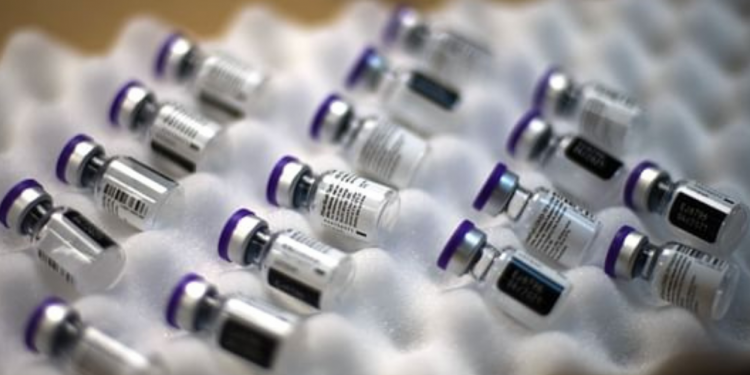Fill Me In
After a year of the COVID-19 pandemic being all rage in conversations, the social buzz seems to finally have found a new subject to discuss. Most appropriately, the COVID-19 suppressing conversation topic is the vaccine for the virus in question.
Delivered via an intramuscular injection, the vaccine, also known as Comirnaty, is an RNA vaccine that functions by inciting an immune response. The vaccination process involves administering two doses given three weeks apart to patients.
In case you missed it, here’s who made the vaccine.
After a year of clamouring for an effective solution to this strain of the coronavirus, pharmaceutical giant Pfizer and biotechnology company Biopharmaceutical New Technologies (or BioNTech) collaboratively developed and produced the world’s first COVID-19 vaccine. It’s authorised by a stringent regulatory authority (SRA) for emergency use and also the first cleared for regular use.
With trials having begun as early as April 2020, a scant four months following the outbreak of the virus, many have regarded the vaccine with apprehension. The United States’ rapidly growing “anti-vaxxers” trend has also contributed to paranoia surrounding the new-to-market vaccine. And while vaccines have been well-tested and safe for human use, certain adverse reactions to Comirnaty have done little to assuage the concerns surrounding it.
READ: COVID-19 Updates: Mr Lawrence Wong at 2021 IPS Forum
Singapore is used to vaccines. Well, for the most part.
While vaccination of its citizens at a young age has been the norm in Singapore, there has been some resistance to the idea of a mandatory issuing of the COVID-19 virus. This resistance seems to stem from supposed negative reactions which include pain, redness, swelling, and soreness of the muscles after jabs were administered. However, these have all been declared as side effects of being vaccinated as opposed to a specific negative reaction to the vaccine itself.
Ministry of Health (MOH) director of medical services Kenneth Mak stated, “Most of these adverse events are very mild. They generally are local reactions that take place that include pain, redness, swelling, soreness of the muscles where an injection has taken place.”
Regarding more notable reactions, he also added, “There are some who have reported fatigue, more generalised muscle aches, and fever. Many of these symptoms, in fact, reflect the body’s immune system responding to the vaccine dose that has been injected in them.”
Adverse reactions to the vaccine are treated with rigorous analysis. Reports on reaction are sent to the Health Sciences Authority (HSA) wherein a pharmacovigilance programme has been set in place to receive and process data.
Despite some of these early adverse reactions, the vaccine’s function seems promising, likely to even prove effective against newer strains of the virus which have been recently detected in South Africa and Britain.
READ: Would You Please Stay Put? What Exactly is SHN?
The vaccine doesn’t inject you with the COVID-19 virus, unlike what we might be used to.
As explained by infectious diseases expert Professor Ooi Eng Eong of the Duke-NUS Medical School to The Straits Times, “[T]he vaccines enable the body to produce antibodies against the whole of the spike protein that the virus uses to infect human cells, while the mutations are mostly occurring only on the tip of the protein.”
In addition to combating the primary strain of COVID-19 that has plagued the world for the last year, the Pfizer-BioNTech COVID-19 vaccine has also proven to be effective against the B.1.1.7 variant originally detected in Britain.
Professor Ooi added, “It’s more important that we make sure that the vaccine is rolled out effectively, that the uptake is high, that we spend sufficient resources to counter misinformation and make sure that decisions about whether to receive the vaccine or not are made with facts.”
How many people have received it in Singapore?
Over 60,000 people have received their first dose of the Pfizer-BioNTech vaccine as of 22 January while vaccinations for senior citizens in Ang Mo Kio and Tanjong Pagar commenced yesterday with an uptake of 300 appointments on the first day. These pilot areas expect to see 5,000 to 10,000 senior citizens receive vaccinations in the near future.
“Depending on the response, we may increase or reduce the number. Soon after the pilot… we will begin to roll out to other areas, other precincts progressively,” said Health Minister Gan Kim Yong.
In addition to the two dedicated vaccination centres slated to be set up at Teck Ghee Community Club and Tanjong Pagar Community Club, senior citizens will also be able to book appointments to be vaccinated at polyclinics.
Here’s what’s available to you.
Currently, the Pfizer-BioNTech vaccine is only one of two vaccines being actively developed and deployed as a measure against COVID-19. The other, the Moderna COVID-19 vaccine, is jointly developed by the United States National Institute of Allergy and Infectious Diseases (NIAID), the Biomedical Advanced Research and Development Authority (BARDA), and the Cambridge-based pharmaceutical and biotechnology company Moderna.
The long-term impact, positive or otherwise, of either vaccine remains to be seen.
Join the conversations on THG’s Facebook and Instagram, and get the latest updates via Telegram.














